If you were to look back on yourself as a child as though you were a detective, what would you notice? Would you have seen the way you felt misunderstood? Would you have sensed the hole deep inside where you wished you were understood?
Many of us did not have the language to describe or the education around the Highly Sensitive Person (HSP) trait to notice our sensitivity. Dr. Elaine Aron’s book, The Highly Sensitive Child, was released in 2002 and is the defacto manual for better understanding this segment of kids. Chances are you experienced clues that you were a Highly Sensitive Child, but couldn’t articulate or explain why.
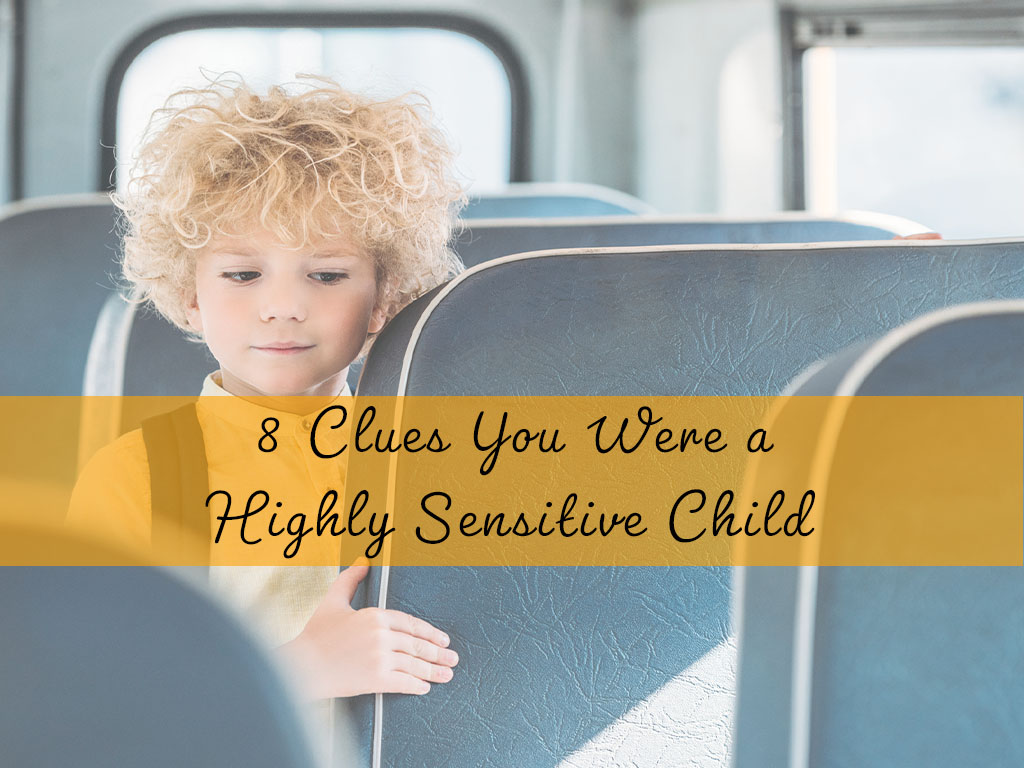
Here are 8 Clues You Were a Highly Sensitive Child (HSC):
Clue #1 – You Didn’t Like Loud, Fast-Paced Team Sports
Some team sports that involve fast-paced moves, lots of yelling, and physical contact tend to overstimulate Highly Sensitive Children. Often, HSCs are introverted and quieter, so an individual sport or slower-paced team sport such as baseball might be a good option. Looking back, did you enjoy playing the sport your parents pushed you to do? If they didn’t allow you to choose, you may still have a negative feeling about many team sports. Tennis, karate, swimming, baseball, track, and cross country are a few good options. The year my dad made me play basketball was not my finest moment.
As an adult, I can still recall the terror of someone thrusting the ball at me while I quickly tried to remember which goal was ours. As an adult, I happily choose hiking, tennis, and yoga to get my exercise.
Clue #2 – You Preferred Playing Alone or with One Friend Over Playing with a Group of Kids
Adults tend to worry about kids who prefer to play alone or only need one or two good friends. Did you enjoy having birthday parties or family parties with lots of people? Or did you prefer quiet play and breathe a deep sigh of relief after everyone had gone home? HSCs often enjoy quiet, relaxed play either alone or with one or two kids. I always thought something was wrong with me and that I was less than because I didn’t enjoy larger friend groups and parties.
As an adult, I’ve worked hard to recognize that larger groups of people stress me out. I can handle them, but greatly prefer lunch with one to three friends over a huge raucous party.
Clue #3 – You Appreciated Art and Music from an Early Age
Look around the room at church, a concert, or a performance of any kind and you’ll quickly notice that some children are completely entranced by what they are seeing and hearing. Many Highly Sensitive Children are drawn into the experience in ways that other kids are not. The “DOES” acronym devised by Dr. Aron goes into detail about why HSPs feel things more deeply. Overall, sensitive people take in more stimuli and feel the emotions that art and music convey. It’s a wonderful gift.
As an adult, I’ve learned to go back, revisit the times I listened to my mother play classical pieces on the piano and value the appreciation I had for music as a child because it’s carried through to my adult life.
Clue #4 – You Had a Special Relationship with Animals and They Became Your Closest Friends
The child that begs for a pet then makes said pet their best friend for life, is often highly sensitive. HSCs have the ability to connect and even communicate with pets beyond the normal child. Sensitivity extends to the emotions and temperaments of people and pets, and children pick up on this. They highly enjoy the simplicity of having a cat or a dog love them completely and unconditionally.
As an adult, I experience this with my own dog. In looking back, my grandmother’s dog was perhaps my closest grade school friend. I could tell Mitzie anything and everything, she loved me without reserve during years I felt misunderstood.
Clue #5 – Your Peers Often Caused You Massive Anxiety
In normal circumstances, peer relationships are tricky in elementary, middle, and high school. For HSCs, it can be absolutely anxiety-producing. Playing games with emotions, frienemies, drama, and fights can cause angst to say the least. While some children are able to thrive in a charter school or homeschool options, many highly sensitive kids can find success during their student years by adopting mindfulness skills and talking through their struggles with a trusted adult who understands their sensitivity trait.
As an adult, I can look back to those painful friend situations and give myself acknowledgment and understanding for what I went through. Now, I can choose my friends more wisely and reduce the overall anxiety in my social life.
Clue #6 – You Experienced Performance Anxiety in Sports and Performance
Many Highly Sensitive People have an overall heightened awareness of themselves, how they are perceived, and what others are feeling and thinking around them. This causes them to struggle with being in the spotlight because they feel that everyone is watching, judging, sizing up, and criticizing them. This can cause massive anxiety and for some, is insurmountable. Sensitive kids can be coached and work to overcome this type of anxiety, but for some like myself, I didn’t conquer it until I was an adult.
As an adult, I can speak, perform, and lead in front of people because I’ve worked through the issues performing in front of people brought up for me. Though I suffered massive performance anxiety as a child, it’s gratifying that I was able to overcome and manage my anxiety during my adult years.
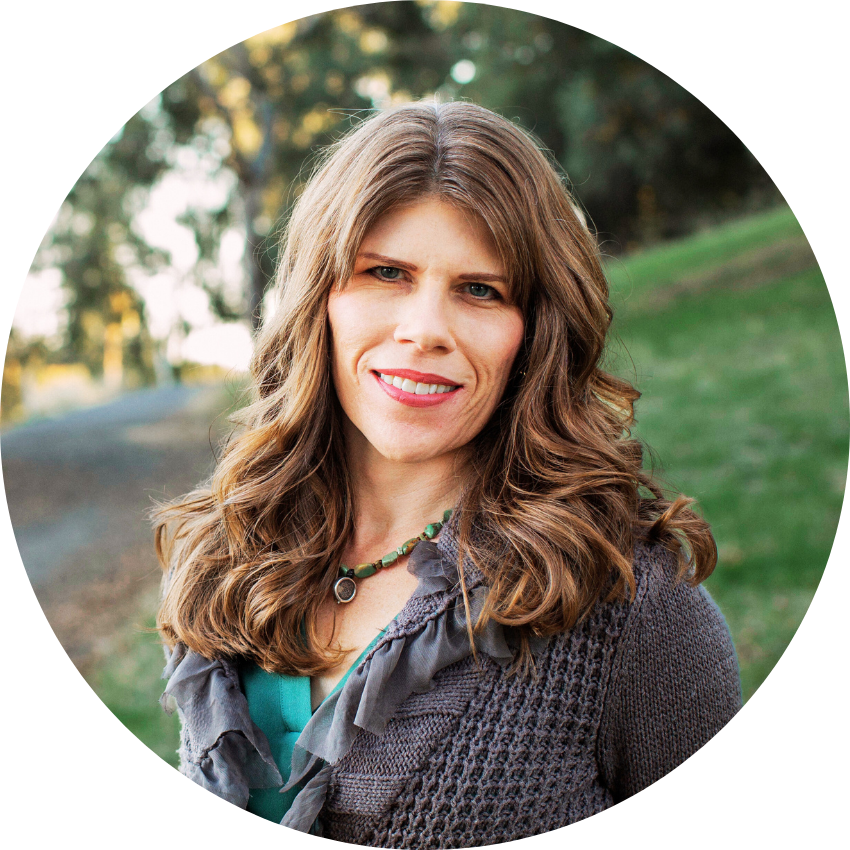
Looking for an HSP-Trained coach to help you align your life with your priorities?
Through my Highly Sensitive Person (HSP) certification with the Nickerson Institute, as well as being an HSP, I offer HSP coaching to develop specific goals around your HSP needs. We HSPs frequently deal with anxiety and overstimulated nervous systems that prevent us from achieving peace and attaining our life goals. HSP coaching with me includes a detailed review of your sensitivities and a mutually-desired plan for growth and management of this superpower to shift negativity and begin seeing yourself as the hero of your own story. [Coaching packages start at $150 per month.]
Clue #7 – Your Caregivers Struggled to Really Understand You
Every sensitive person can tell you who in their families did not accept them as a sensitive kid. It’s unfortunate when your parents do not understand. There is no easy way to overcome the damage well-meaning caregivers did to you. I welcome you to take a moment to pause and say something kind and loving to your little child self: “You muddled through even though you were hurt, you were so sweet and sensitive. You didn’t exactly get what you needed, it wasn’t ideal. You needed love and understanding.” As parents learn more about the Highly Sensitive Person trait, the world will be better equipped to care for children in this world.
As an adult, I can look back on myself as a child and give her what she needed. I can care for myself well now and pause when I need to go back and speak kindly to the wounded girl inside. You too can heal, grow, adapt, and care for yourself now in ways you never could as a child.
Clue #8 – You Had an Innate Aversion to Scary Films and Violent TV Shows
Many sensitive children have a strong natural aversion to scary films, cartoons, and TV shows. They also tend to dislike overly violent media as well. Many HSCs are the future healers, therapists, artists, writers, and musicians of the world–harming people even for entertainment’s sake goes against how God created them in the first place. Many HSCs have trouble getting graphic, disturbing images out of their minds and can have frightening nightmares from what they’ve seen. Offer these sensitive children an option and pre-screen media before sitting down to watch a movie just to make sure.
As an adult, I can look back to the times I watched Friday the Thirteenth at a sleepover and couldn’t sleep for a week and offer myself grace for not knowing how it would affect me. Now, I can choose what I watch and turn it off when a show crosses the line of what I can tolerate.
In Aron’s book, Highly Sensitive Child, she offers encouragement to those parenting Highly Sensitive Children:
The world needs well-raised HSPs. It is desperate for them. What could we need more right now than people who think carefully, feel deeply, notice the subtle details, and end up having the big picture? We need one thing more, however–that is that such people have the courage to speak up and push back when non-sensitive people do not see, think, and feel enough for the situation. – Dr. Elaine N. Aron, Ph.D.
Be sensitive, be free
*This post contains affiliate links and I will be compensated if you make a purchase after clicking on my links*

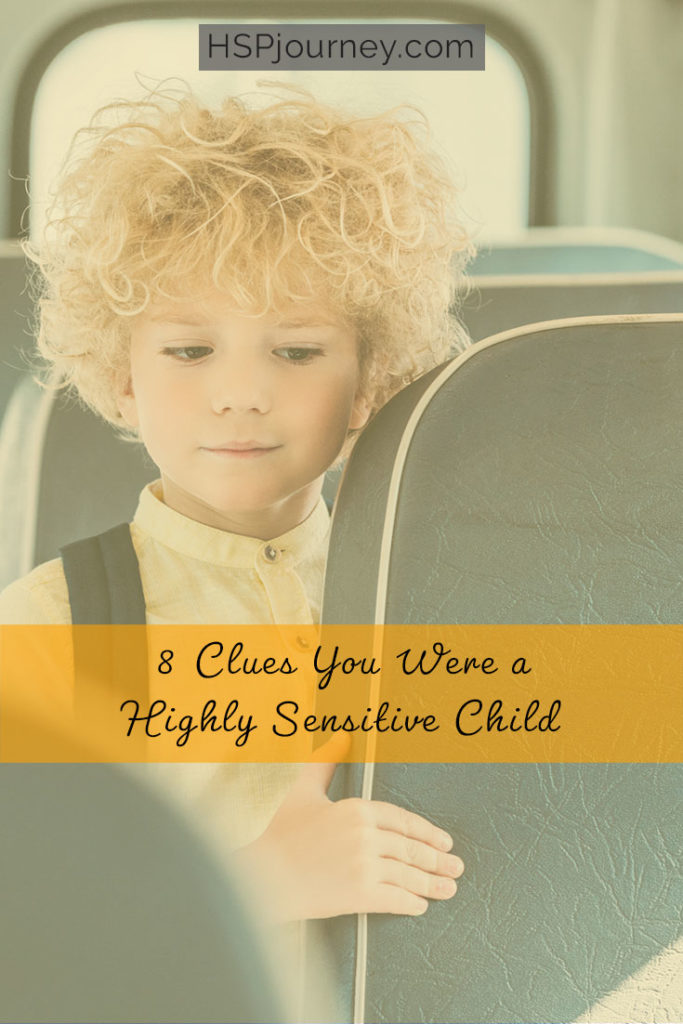
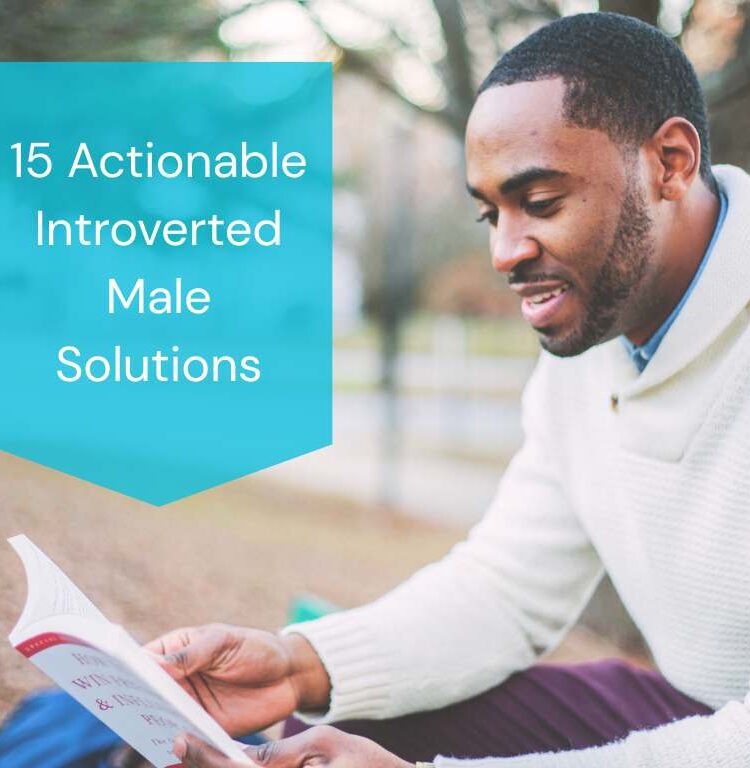

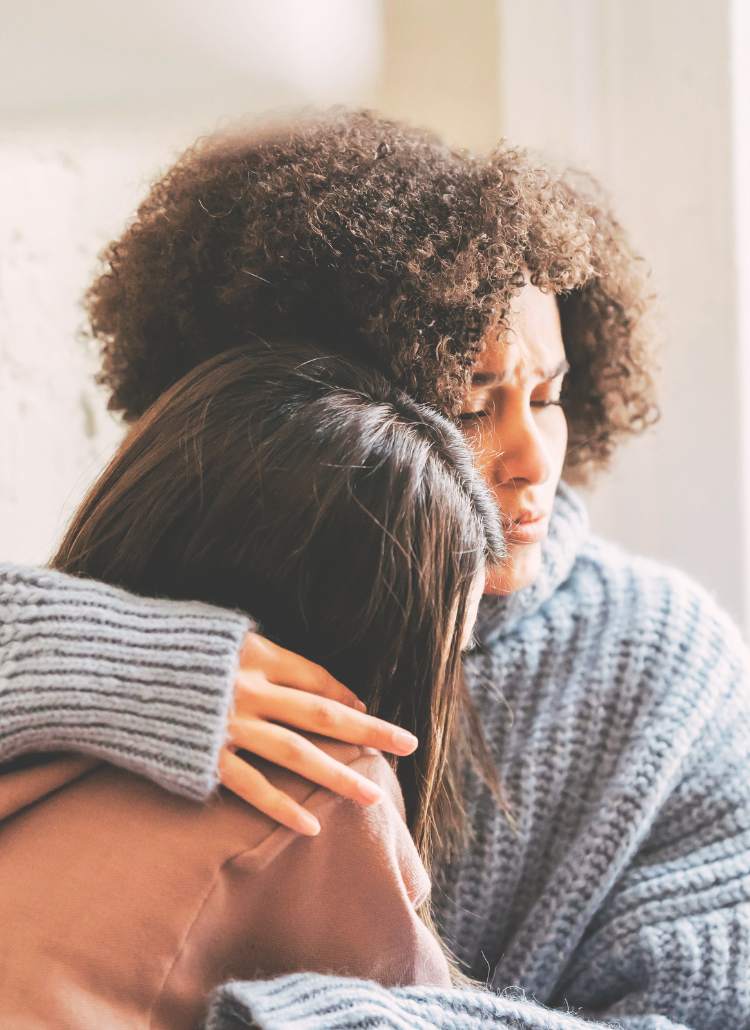

[…] journey on the path to understanding ourselves as highly sensitive people. We may have been misunderstood as children, and perhaps even as sensitive adults. We might have been bullied. We might have felt shame in how […]